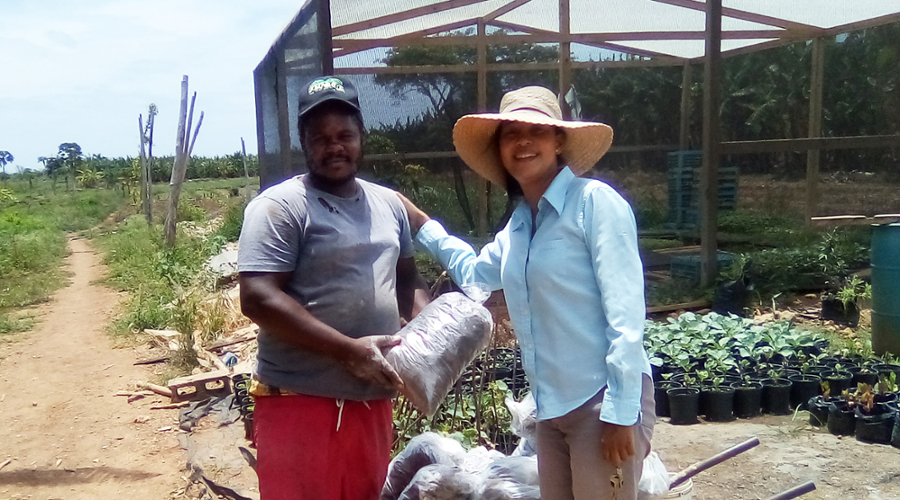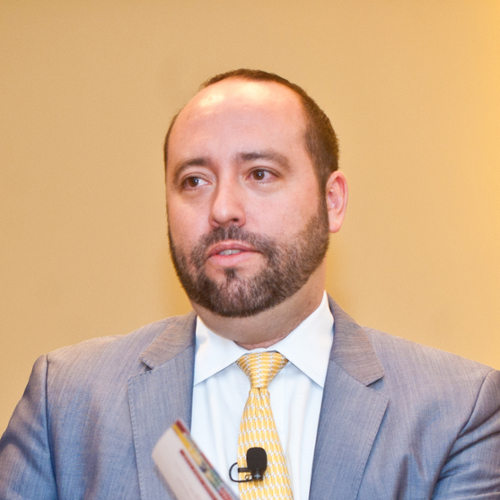
Carol Lue, MBA'03, shifted gears when her career was interrupted to launch a food waste recycling and biogas business in Jamaica.
Carol Lue, MBA’03, isn’t afraid to switch things up.
When her career in corporate social responsibility hit an unexpected snag, Lue moved back home to Jamaica and founded a green nonprofit that promotes renewable energy and supports local farmers on the island.
Lue had previously worked in Toronto for Sears, Roebuck and Co., but in 2011 financial turmoil at the iconic company forced the elimination of her entire department. Making the most of the setback, Lue decided to reevaluate her professional goals and ultimately try her hand at entrepreneurship.
“When you reach a certain point in your career, you’re looking for that personal fulfillment as well,” said Lue. “And I’ve always had an interest in development issues, particularly in Jamaica.”
Lue founded the biogas nonprofit CaribShare in 2012. Drawing inspiration from similar projects in Canada, the organization uses food waste from resort hotels in Montego Bay to produce biogas, a renewable fuel used for clean electricity generation.
Having never started a business before — prior to Sears, she negotiated product sourcing for two other companies — Lue initially thought she could have CaribShare up and running in a couple of years before returning to Toronto.
“I thought, I’ll do a business plan. How difficult can it be?” she joked. “People produce biogas all over the world. I didn’t think it would be so difficult. If I did, I don’t know if I would have gotten myself into it.”
Lue quickly learned some of the challenges that come with running a nonprofit — unforeseen obstacles, elusive funding, implacable bureaucracy and costly learning curves, to name a few. But she persisted, cutting through seemingly impenetrable red tape, hiring dedicated staff and securing the funding CaribShare needed to stay afloat.
Lue’s grit and creativity have kept investors interested.
She started out with a $200,000 grant in 2012 from the Inter-American Development Bank. In 2015, Lue won a pitch competition held by the Branson Centre — an incubator for Jamaican startups founded by British airline executive Sir Richard Branson. The prize for best social project earned CaribShare another grant worth 1 million Jamaican dollars (or about $86,000 at the time). More recently, Lue has secured grants from the Development Bank of Jamaica, Environmental Foundation of Jamaica and United States Agency for International Development.
Biogas digesters require two main ingredients: food and a biological reactor like manure. Securing those materials turned out to be relatively easy for Lue, who negotiated with all the resort hotels to pick up their food waste. Her manure supply comes from local farmers, who Lue said are often overlooked on the island but have proven to be an important partner for CaribShare.
In exchange for manure, CaribShare provides the farmers with a share of the food waste from the resorts, which the farmers use to feed their animals. The biogas digesters also produce a byproduct rich in nutrients that can be used as a potent fertilizer, which Lue also shares with the farmers.
By necessity, Lue’s plans for the future remain flexible. She credits Brandeis International Business School for teaching her the importance of being persistent and for viewing business opportunities through a socially conscious lens.
“When you’re an entrepreneur, you have to be flexible,” said Lue. “But when you’re flexible, every challenge is an opportunity.”
Featured Stories
News Categories

December 18, 2020
December graduates honored at virtual celebration
December 15, 2020
Staying one step ahead of cyberattacks
November 10, 2020
Prof. Musacchio named NBER research associate